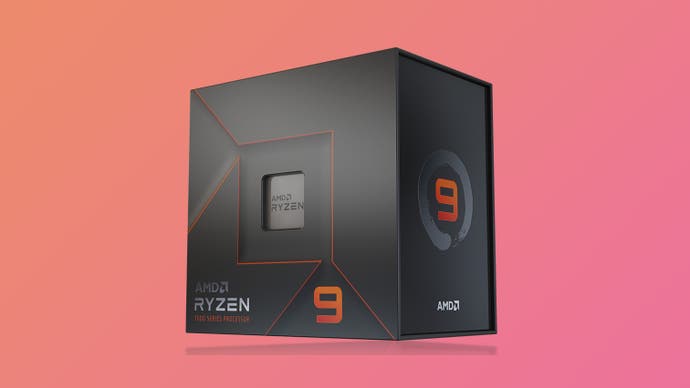AMD Ryzen 9 7900X and Ryzen 5 7600X review: welcome to the future
A solid upgrade from AMD - but far from a knockout blow to Intel's 12th-gen parts.
So after our performance testing, it's time to wrap things up. Ryzen 7000 represents an important progression for AMD, reclaiming feature parity with Intel's 12th-gen chips with the addition of integrated graphics on all models and PCIe 5.0 / DDR5 support. These chips are significantly faster than their Ryzen 5000 predecessors too, with the move to DDR5, higher clock speeds and higher power targets all contributing.
Looking at the Ryzen 5 chip, we saw upwards of a 25 percent frame-rate improvement from the 5600X to 7600X in many games at 1080p - perfectly in line with the uptick in single-core performance in synthetic benchmarks. With faster DDR5-6000 RAM, we saw an even more impressive gen-on-gen improvement, reaching 46 percent in Flight Sim 2020 and 48 percent in Cyberpunk 2077. Our real world video transcode test also produced impressive results, with the 7600X delivering a 40 percent frame-rate lead over the 5600X.
The Ryzen 7900X is similarly strong in content creation tests, with its higher clocks and IPC allowing it to outperform the last-generation Ryzen 9 5950X despite having fewer cores and threads. Gaming performance was also outstanding, with a 10 to 25 percent improvement over the last-gen 5950X (and by analogue, the 5900X) at 1080p. However, the 12900K and 5800X3D do remain faster in a handful of tests; the 7900X doesn't quite represent the knock-out blow that AMD was no doubt hoping for at the top end. Perhaps we'll see a '7900X3D' somewhere down the road that combines the best of the 7900X and 5800X3D to really seal off that top spot.

With the move to a new platform, AMD also gives up some of the advantages it enjoying in the last generation - at least temporarily. The surfeit of affordable AM4 motherboards and cheap, effective DDR4 has been replaced by more expensive AM5 and DDR5 alternatives. These will no doubt get cheaper over time - we've already seen significant shifts in DDR5 prices following its debut last year - but Ryzen 5000 processors, particularly the 5800X3D, may be a canny choice for anyone seeking a high performance, low cost gaming PC.
Cooling is also more of a concern for Ryzen 7000; although the new generation is more efficient, it also draws more power. That means choosing the right CPU cooler is important with the 170W parts (7900X and 7950X). You also don't get a free CPU cooler with the 7600X, which is a shame given that you did with the 5600X in 2020.
Similarly, we saw a decent ~10 percent frame-rate improvement when moving from DDR5-5200 to DDR5-6000 in some CPU-limited gaming scenarios, so depending on your resolution and preferences a faster but more expensive DDR5 kit can unlock some extra performance.
While the 7600X and 7900X are interesting enough in their own right, it'll be fascinating to see how the remaining members of the Ryzen 7000 family, the 7700X and the 7950X, fare as well. The 7950X in particular looks likely to be a godsend for content creators that can make use of its high core count and improved single-core speeds, and the 7700X is likely to be a popular choice amongst gamers too that want an eight-core solution.
It's all good stuff then, but the elephant in the room is that Intel's 13th-gen CPUs are due to be announced on September 27th, and most likely be offered for sale within a few weeks. These parts are meant to offer a fairly robust improvement over 12th-gen, with leaks suggesting higher clock speeds, more cache and more efficiency cores. If Intel sees big gains, then AMD's new chips could lose some of their lustre. Only time will tell.
AMD Ryzen 9 7900X and Ryzen 5 7600X analysis
- Introduction, test rig and content creation benchmarks
- Gaming benchmarks: Flight Simulator 2020, Hitman 3
- Gaming benchmarks: Counter-Strike: GO, Metro Exodus EE, Black Ops Cold War
- Gaming benchmarks: Cyberpunk 2077, Far Cry 6, Crysis 3 Remastered
- Gaming benchmarks: Memory bandwidth analysis
- AMD Ryzen 9 7900X and Ryzen 5 7600X: the Digital Foundry verdict [This Page]
